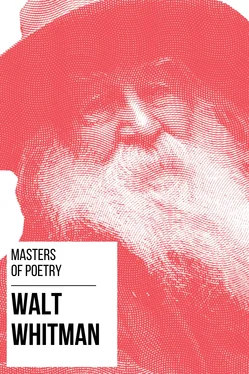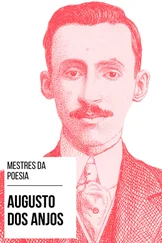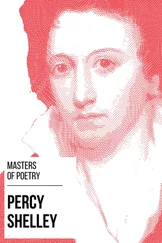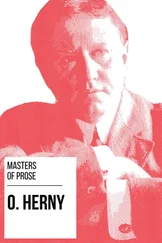I hardly need say that in Whitman formal art, the ostensibly artistic, counts for but very little. The intentional artist, the professional poet, is kept entirely in abeyance, or is completely merged and hidden in the man, more so undoubtedly than in any poet this side the old Oriental bards. We call him formless, chaotic, amorphous, etc., because he makes no appeal to our modern highly stimulated sense of art or artificial form. We must discriminate this from our sense of power, our sense of life, our sense of beauty, of the sublime, of the all, which clearly Whitman would reach and move. Whitman certainly has a form of his own: what would a poet, or any writer or worker in the ideal, do without some kind of form? some consistent and adequate vehicle of expression? But Whitman's form is not what is called artistic, because it is not brought within the rules of the prosodical system, and does not appeal to our sense of the consciously shaped and cultivated. It is essentially the prose form heightened and intensified by a deep, strong, lyric and prophetic note.
The bonds and shackles of regular verse-form Whitman threw off. This course seemed to be demanded by the spirit to which he had dedicated himself,—the spirit of absolute unconstraint. The restrictions and hamperings of the scholastic forms did not seem to be consistent with this spirit, which he identified with democracy and the New World. A poet who sets out to let down the bars everywhere, to remove veils and obstructions, to emulate the freedom of the elemental forces, to effuse always the atmosphere of open-air growths and objects, to be as "regardless of observation" as the processes of nature, etc., will not be apt to take kindly to any arbitrary and artificial form of expression. The essentially prose form which Whitman chose is far more in keeping with the spirit and aim of his work than any conventional metrical system could have been. Had he wrought solely as a conscious artist, aiming at the effect of finely chiseled forms, he would doubtless have chosen a different medium.
Whitman threw himself with love and enthusiasm upon this great, crude, seething, materialistic American world. The question is, Did he master it? Is he adequate to absorb and digest it? Does he make man-stuff of it? Is it plastic in his hands? Does he stamp it with his own image? I do not ask, Does he work it up into what are called artistic forms? Does he make it the quarry from which he carves statues or builds temples? because evidently he does not do this, or assume to do it. He is content if he present America and the modern to us as they are inwrought into his own personality, bone of his bone and flesh of his flesh, or as character, passion, will, motive, conviction. He would show them subjectively and as living impulses in himself. Of course a great constructive, dramatic poet like Shakespeare would have solved his problem in a different manner, or through the objective, artistic portrayal of types and characters. But the poet and prophet of democracy and of egotism shows us all things in and through himself.
His egotism, or egocentric method, is the fundamental fact about his work. It colors all and determines all. The poems are the direct outgrowth of the personality of the poet; they are born directly upon the ego, as it were, like the fruit of that tropical tree which grows immediately upon the trunk. His work is nearer his radical, primary self than that of most poets. He never leads us away from himself into pleasant paths with enticing flowers of fancy or forms of art. He carves or shapes nothing for its own sake; there is little in the work that can stand on independent grounds as pure art. His work is not material made precious by elaboration and finish, but by its relation to himself and to the sources of life.
Whitman was compelled to this negation of extrinsic art by the problem he had set before himself,—first, to arouse, to suggest, rather than to finish or elaborate, less to display any theme or thought than "to bring the reader into the atmosphere of the theme or thought;" secondly, to make his own personality the chief factor in the volume, or present it so that the dominant impression should always be that of the living, breathing man as we meet him and see him and feel him in life, and never as we see him and feel him in books or art,—the man in the form and garb of actual, concrete life, not as poet or artist, but simply as man. This is doubtless the meaning of the vestless and coatless portrait of himself prefixed to the first issue of the "Leaves," to which I have referred. This portrait is symbolical of the whole attitude of the poet toward his task. It was a hint that we must take this poet with very little literary tailoring; it was a hint that he belonged to the open air, and came of the people and spoke in their spirit.
It is never the theme treated, but always the character exploited; never the structure finished, but always the plan suggested; never the work accomplished, but always the impulse imparted,—freedom, power, growth.
"Allons! we must not stop here.
However sweet these laid-up stores, however convenient this dwelling, we cannot remain here,
However sheltered this port, or however calm these waters, we must not anchor here,
However welcome the hospitality that surrounds us we are permitted to receive it but a little while.
"Allons! With power, liberty, the earth, the elements!
Health, defiance, gayety, self-esteem, curiosity;
Allons! from all formulas!
From your formulas, O bat-eyed and materialistic priests!"
This magnificent poem, "The Song of the Open Road," is one of the most significant in Whitman's work. He takes the open road as his type,—not an end in itself, not a fulfillment, but a start, a journey, a progression. It teaches him the profound lesson of reception, "no preference nor denial," and the profounder lesson of liberty and truth:—
"From this hour, freedom!
From this hour I ordain myself loosed of limits and imaginary lines,
Going where I list—my own master, total and absolute,
Listening to others, and considering well what they say,
Pausing, searching, receiving, contemplating,
Gently, but with undeniable will, divesting myself of the holds that would hold me.
"I inhale great draughts of air,
The east and the west are mine, and the north and the south are mine."
He will not rest with art, he will not rest with books, he will press his way steadily toward the largest freedom.
"Only the kernel of every object nourishes.
Where is he who tears off the husks for you and me?
Where is he who undoes stratagems and envelopes for you and me?"
Whitman was not a builder. If he had the architectural power which the great poets have shown, he gave little proof of it. It was not required by the task he set before himself. His book is not a temple: it is a wood, a field, a highway; vista, vista, everywhere,—vanishing lights and shades, truths half disclosed, successions of objects, hints, suggestions, brief pictures, groups, voices, contrasts, blendings, and, above all, the tonic quality of the open air. The shorter poems are like bunches of herbs or leaves, or a handful of sprays gathered in a walk; never a thought carefully carved, and appealing to our sense of artistic form.
The main poem of the book, "The Song of Myself," is a series of utterances, ejaculations, apostrophes, enumerations, associations, pictures, parables, incidents, suggestions, with little or no structural or logical connection, but all emanating from a personality whose presence dominates the page, and whose eye is ever upon us. Without this vivid and intimate sense of the man back of all, of a sane and powerful spirit sustaining ours, the piece would be wild and inchoate.
Читать дальше












